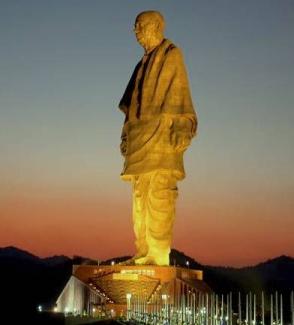Challenging the Beliefs: How Covid-19 Crisis Brings Out Frivolous Self
A few days back in a startling incident, some unknown persons placed an advertisement on a global online marketplace for the sale of the Statue of Unity located at Sardar Sarovar Dam, Gujarat. He/she quoted the price of the ‘monument’ at Rs 30,000 crore and claimed that the money would be used to meet the requirement of hospitals and buy healthcare equipment to handle the Covid-19 crisis. Obviously, this is an act of stupidity and needs to be condemned. An FIR has already been lodged for cheating and forgery case; it is illegal to put on sale a public property. Over the last few years, India has developed reasonable expertise in regards to cracking down on cyber-crimes. Hence, it is only a matter of time when the culprit would be apprehended by the cyber-crime branch of the police.
The Covid-19 crisis is far from over and this is not the right time to undertake any mind-reading exercise. But, still, there is a need to look at this act from another perspective. It is not the purpose of the author over here to take any political, regional, racial or religious view. However, this eccentric act of an individual raises some basic questions about how people observe investments made by the states with an entirely different frame of reference at times of crisis. Possible challenges from the pandemics were well-known. But we are a reactive society and now trying desperately to resolve the crisis. Possibly, that is why someone is thinking that we have not used our resources correctly for all these years in order to remain prepared for possible health emergencies.
Prosperity has been the hallmark of the global community and fairly so. We followed various growth models to attain that prosperity. At the same time, there was always power-dynamics associated with every act. As a society, we took positions based on our religious, cultural, caste-based and social beliefs. But while doing all this we forget the basics -- that for carrying forward any agenda the human race needs to exist first. For all these years, the entire global community has been passionate about every other thing except remaining prepared to address health emergencies. Maybe that is why today someone feels that we have been investing much towards building monuments and reclaiming our past, while we have forgotten to pay enough attention to pandemics. Here the issue is that as a community we probably look for options which are impactful and glamorous. There is always an attempt to present our past and our heritage in a larger than life form. Such acts could offer range of gains from economic to political. However, when a grave crisis emerges, people question some of the past doings.
From Shivaji Maharaj to Gandhi and Ambedkar and from Abraham Lincoln to Nelson Mandela, we believe that the greatest tribute to all our icons is to erect their statues and build memorials. However, there are very fewer efforts to project and imbibe their teachings and thoughts in our daily lives.
There have been deadly pandemics in recorded history like plague and smallpox. There are official records and documents available that tell us how the people in the past suffered from these pandemics and what attempts were made to overcome them. However, for all these years our learning from history was only to use it selectively to glorify our past for the benefits in the present. We focussed on the ‘personalities’ rather than the ‘processes’ of the past. Hence, we refused to learn how our ancestors addressed various threats like pandemics. We never looked at how the administration was handling these threats then and how the leadership in that era responded.
The Buddhas of Bamyan, the 6th-century monumental statues of Gautam Buddha in Afghanistan, were destroyed in March 2001 by the Taliban. Definitely, this had no impact on Buddhism as such. This is because the thought is still alive. The problem is that more than the thought, we are running after the images.
Some pandemics have had a global impact in the past, while few were controlled within a limited geographical space. It was known that any major pandemic can alter the lives, regionally or globally. But still, there was a general belief that this will not happen in our lifetime! Now, when this belief is getting challenged then obviously humans are getting restless. They feel that there have been no beneficial learnings from our past. The money and resources normally used for the glorification of the past, which otherwise could have been used more constructively for improving the health sector infrastructure. The person who has tried to sell the Statue needs to be counseled or reprimanded, but at the same time, there is an urgent need for some self-reflection and introspection too.
